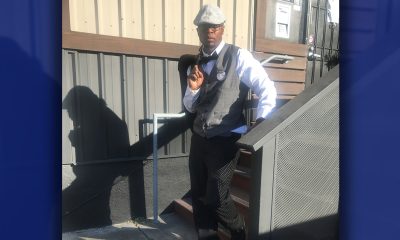Events
Lecture Series to Address Gender Inequality with Anita Hill
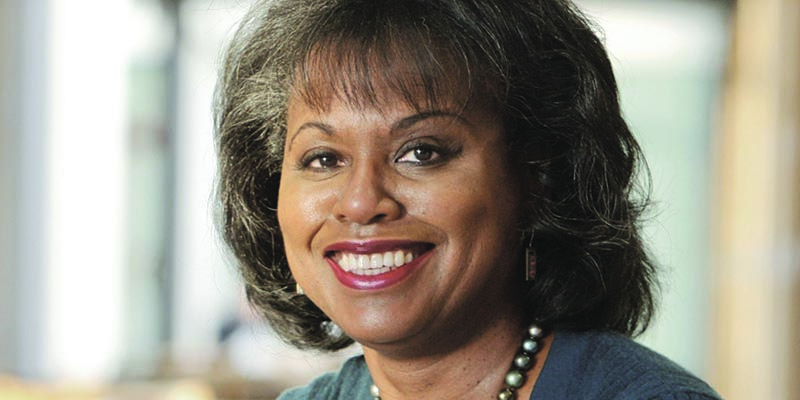
The world is ripe to revisit Anita Hill’s story—and to catch up on where her story has gone.
Young women today were too young to have watched the confirmation hearings of Supreme Court Justice Clarence Thomas in 1991, but they may know Hill’s name anyway.
She testified at these hearings about the sexual harassment she experienced while working for Thomas at the Equal Employment Opportunity Commission (EEOC). Thomas was confirmed—by the narrowest margin of approval in over a century—and continues to serve as a Supreme Court justice.
In December 2017, Hill was asked to lead the Commission on Sexual Harassment and Advancing Equality in the Workplace.
The commission was spearheaded by women in entertainment, and seeks to correct the industry’s issues, thrust into the spotlight by the #MeToo movement.
Their second meeting is in March.
“When you have a culture that supports harassment, it also supports other kinds of biases,” Hill said. “We’re going to be looking at all of the ways that under-represented or marginalized communities are kept from having equal opportunity and equal outcome in the entertainment industry.”
Hill has said that coming forward with the allegations in 1991 changed the trajectory of her life. Since that hearing, she has leaned into that trajectory and used her platform to continue the conversation around sexual harassment in the workplace.
Although Hill’s testimony sparked this conversation 27 years ago, only recently has the conversation sparked a movement.
In 1992, there were almost 10 times as many sexual harassment claims filed with the EEOC than the year before—from 1,244 to 10,532. This is a source of pride for Hill.
“I’m not just proud of the fact that they filed complaints in court or with their employers; I’m also proud that they were able to share their stories with their families,” she said. “This is something that women had been keeping secret from the people who cared about them…and just had no idea that they had to suffer.”
Hill has had many accomplishments beyond her difficult testimony from that year.
She became the first tenured Black professor at the University of Oklahoma, wrote several books, and has remained an advocate for equality for over the last 27 years.
She’s now a full-time law professor at Brandeis University, although she is currently on a one-year leave.
And her leave is not a vacation—she’s at MIT assessing the 45th year of Title IX and the various ways that women still suffer disadvantages in higher education, particularly women in STEM (Science, Technology, Engineering, and Math).
She’s also serving on the board of directors of the National Women’s Law Center, the organization that administers the money raised from the TIME’S UP Legal Defense Fund.
When I asked Hill what her greatest accomplishment was, she said, “I haven’t had it yet.”
Hill is proud “that the groundwork that had been laid by me and by many other women who have been involved in research, filed complaints, or done advocacy work has led to this moment.”
But she says there is still work to do.
“With the work of this commission, and with the work that I’m continuing to do, I’m [confident] that we will see more change,” she said.
Women’s movements are working to hold abusers accountable, and reduce the risks of coming forward with sexual harassment complaints. But Hill said it’s still not possible for every woman to formally come forward.
“Not everybody’s going to be able to file a complaint, because we still know that there are women who are too vulnerable to come forward,” she said.
Hill said she wants to take a look at the history of sexual harassment, and “to see this moment in time as an enlarging of our ideas about what is freedom and what’s equality,” she said.
“For too long,” she said, “the idea that women and girls—and really all people—should be free of sexual coercion, wasn’t part of a bigger agenda of equality. And this is a moment where we can make it a part of that.
“So how we now think about equality needs to include the freedom to work, and go to school, and walk the streets free of sexual assault and harassment.”
Hill is excited to come to Oakland. She is speaking at the Barbara Lee & Elihu Harris Lecture Series on Saturday, March 10, 7 p.m., at the Oakland Marriott City Center, 1001 Broadway in Oakland.
The event, which is free, is part of the Elihu Harris & Barbara Lee Lecture Series, co-presented by the Martin Luther King Jr. Freedom Center and Peralta Community College District.
To RSVP, call (510) 434-3988.
Activism
NAACP California-Hawaii State Convention Highlights Black Voter Engagement, and More
A Friday panel featuring NAACP Chairman Leon W. Russell and Regina Wilson, Executive Director of California Black Media, examined Project 2025, an initiative perceived as a potential threat to civil rights, healthcare access, and environmental protection. This session emphasized Project 2025’s projected impact on Black communities, noting that policies within the initiative could diminish gains in civil and environmental rights over decades. Russell and Wilson highlighted the need for vigilant monitoring and community mobilization to address these challenges.

By Bo Tefu, California Black Media
The 37th NAACP California-Hawaii State Convention concluded on Sunday, Oct 27, following four days of discussions and workshops at the Los Angeles Airport Marriott. Bringing together civil rights leaders, policymakers, and advocates from California and Hawaii, the convention operated under the theme “All In.” The participants discussed critical issues impacting Black communities, including criminal justice reform, health equity, economic empowerment, education, environmental justice, and voting rights.
A Friday panel featuring NAACP Chairman Leon W. Russell and Regina Wilson, Executive Director of California Black Media, examined Project 2025, an initiative perceived as a potential threat to civil rights, healthcare access, and environmental protection. This session emphasized Project 2025’s projected impact on Black communities, noting that policies within the initiative could diminish gains in civil and environmental rights over decades. Russell and Wilson highlighted the need for vigilant monitoring and community mobilization to address these challenges.
On Saturday, the President’s Fireside Chat brought together NAACP President Derrick Johnson and CA/HI State Conference President Rick Callender, who discussed the urgency of voter engagement and community advocacy.
Guest speakers included Congresswoman Maxine Waters (D-CA-43), who spoke at the Women in NAACP (WIN) Labor Luncheon about the intersection of labor rights and civil rights. California State Superintendent Tony Thurmond delivered remarks at the Leadership Dinner on education equity, focusing on policies to ensure all students have access to high-quality education.
Honors were given to longtime social justice advocate and former Assemblymember Mike Davis for his work in community activism. At the same time, actor and activist Danny Glover and the Rev. Dr. Amos C. Brown received the 2024 Legacy Hall of Fame Awards, recognizing their lifelong commitments to advancing civil rights.
The convention also offered practical workshops, including “What’s On Your Ballot?,” where coalition leaders provided analyses of California propositions, explaining their potential impacts on community rights and resources. The Voter Turnout Workshop provided background and encouraged participants to promote voter turnout through community-centered outreach strategies.
Sunday’s events closed with a Prayer and Memorial Breakfast honoring the contributions of past and current civil rights leaders.
Activism
Fights Narrowly Break Out at Business Strike Press Conference at Oakland City Hall
Recall supporters called for a one-day business strike for the second year in a row to demand that the city do more to ensure public safety is a priority and that business owners are not plagued by the ongoing retail crime. Less than five minutes into the press conference, opponents of the recall began yelling at the recall supporters. This caused many recall volunteers to become upset with the “hecklers.”

By Magaly Muñoz
What was intended to be a press conference for a planned city-wide business strike turned into two separate altercations between supporters and opponents of the recall of Oakland Mayor Sheng Thao and Alameda District Attorney Pamela Price in front of Oakland City Hall.
Recall supporters called for a one-day business strike for the second year in a row to demand that the city do more to ensure public safety is a priority and that business owners are not plagued by the ongoing retail crime.
Less than five minutes into the press conference, opponents of the recall began yelling at the recall supporters. This caused many recall volunteers to become upset with the “hecklers.”
One recall volunteer confronted the Thao supporters and attempted to physically intimidate them while also screaming obscenities in their faces. After several moments, the volunteer was pulled away from the Thao supporters and returned to the conference.
Soon after that incident, Ray Bobbitt, founder of the African American Sports and Entertainment Group (AASEG) that now owns the Oakland Coliseum, walked up to the rally and attempted to take the microphone from Seneca Scott, leader of the Thao recall efforts. The situation soon escalated as Scott pushed Bobbitt away.
Scott has made several comments at press conferences and on social media that the Coliseum sale deal is a fraud and that AASEG will not provide the city with the promised multi-million dollar funds. Bobbitt told the Post that he is tired of Scott “being a bully” and only wanted to talk through whatever issues Scott had with AASEG.
When Bobbitt asked Scott to talk privately, Scott responded with a threatening remark. Bobbitt soon left the scene after several people talked him down.
“We really need to abandon the toxicity. I’m here to bring our community together, not divide it,” Bobbitt told the Post.
Back with the recall group and business owners, speakers said that businesses are scared to file police reports because Oakland officers “don’t care anymore” and are scared that their insurance rates will increase.
“We’re here today because the last blood of our city is leaking out with no tourniquet. Cities run on commerce. The only reason for a city is commerce. Failure to protect commerce leads to a dying city,” Scott said.
Several businesses in the last year have closed down, such as In-N-Out Burger and Denny’s on the Hegenberger corridor, citing public safety concerns. Local businesses have also left because of break-ins, homelessness, and overall lack of security.
At the time of last year’s business strike, crime was up 26% from the year before, according to Oakland police data. Rumors of a Thao recall were also building around this event.
Crime today is down 37%, according to the same data. This point has been used heavily in Thao’s attempt to rally support against the recall against her.
Speakers at the Tuesday press conference said some owners were sleeping at their businesses for fear of people breaking in to steal from them or vandalize their locations.
“The only things that are not locked up in the stores are criminals,” one speaker said.
Rally organizers claimed that over 200 businesses were participating in the strike. But when the Post asked recall organizers if they could provide a list of all the participants, the request was denied.
“This is an example of the sort of chaos the recall campaign seeks to create in Oakland. This is the last minute last ditch stunt of a coal investor funded campaign that has realized that Oakland residents are going to say NO to the $10 million price tag, the chaos and the division their campaign represents,” a Thao supporter spokesperson said ahead of the business strike.
Activism
San Francisco Foundation Celebrates 76th Anniversary
“I’m not going to sugarcoat it: the past couple of years have been tough. From uncertainty about the future of our nation to ongoing wars and violence globally to Supreme Court decisions that rolled back decades of work on racial equity and reproductive rights – it’s easy to become cynical and fatigued,” said San Francisco Foundation CEO Fred Blackwell.
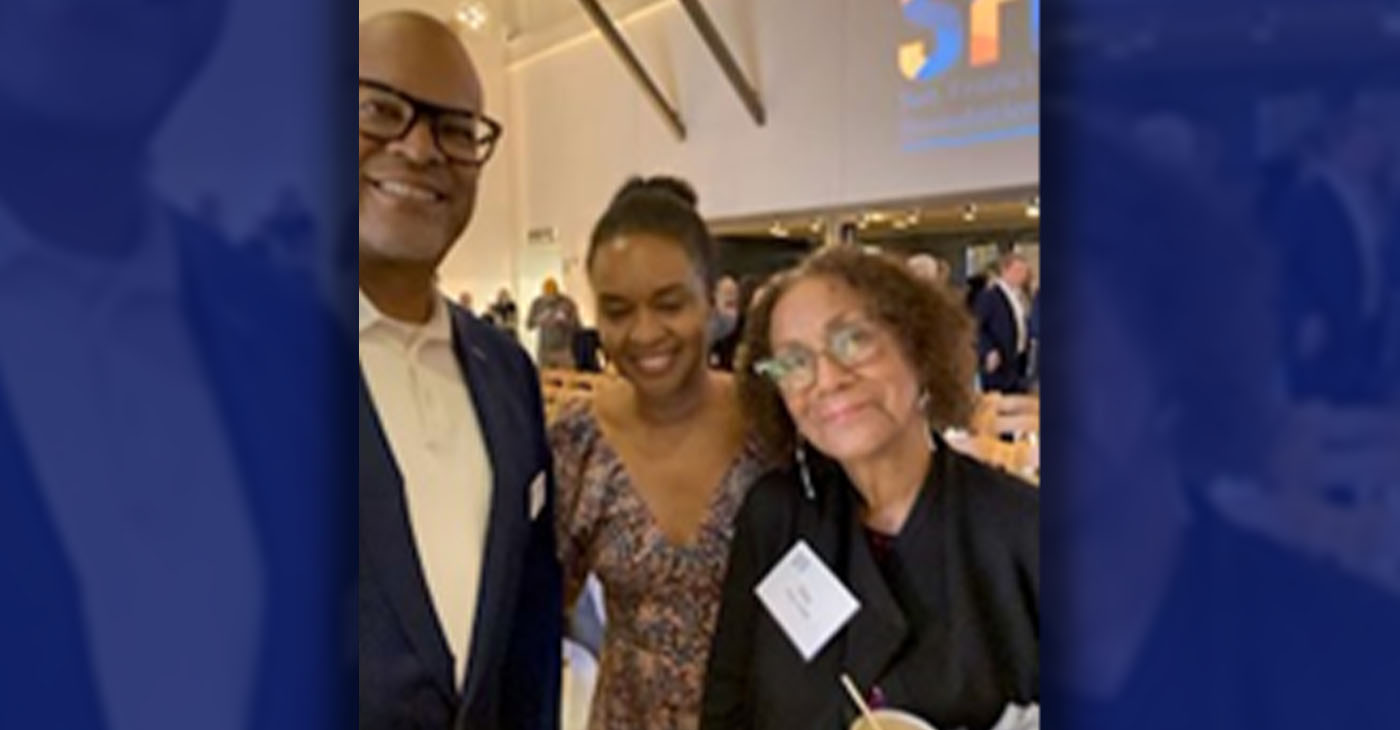
By Conway Jones
The San Francisco Foundation celebrated the 76th anniversary of its founding in 1964 on Thursday, Oct. 24, at The Pearl in San Francisco.
Over 150 people came together with members of the SFF community whose intent was to fulfill the promise of the Bay: democracy, racial equity, affordable housing, and more.
A fireside chat featured SFF CEO Fred Blackwell in conversation with KQED Chief Content Officer and SFF Trustee Holly Kernan.
“I’m not going to sugarcoat it: the past couple of years have been tough. From uncertainty about the future of our nation to ongoing wars and violence globally to Supreme Court decisions that rolled back decades of work on racial equity and reproductive rights – it’s easy to become cynical and fatigued,” said Blackwell.
“Resolve is what is necessary to keep us moving forward in the face of attacks on DEI and affirmative action, of an economy that undervalues arts and caretaking, of a housing shortage that keeps too many of our neighbors sleeping in the streets,” he continued.
Youth Speaks provided poetry and a musical performance by Audiopharmacy, a world-renowned hip-hop ensemble and cultural community arts collective.
The San Francisco Foundation is one of the largest community foundations in the United States. Its mission is to mobilize community leaders, nonprofits, government agencies, and donors to advance racial equity, diversity, and economic opportunity.
-

 Alameda County1 week ago
Alameda County1 week agoAlameda County District Attorney Pamela Price Announces $7.5 Million Settlement Agreement with Walmart
-
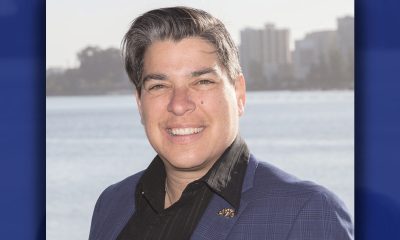
 Activism2 weeks ago
Activism2 weeks agoOP-ED: Hydrogen’s Promise a Path to Cleaner Air and Jobs for Oakland
-
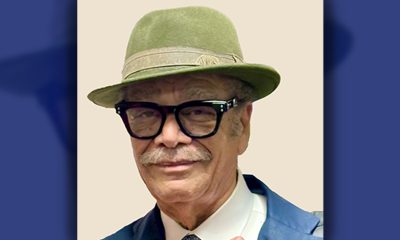
 Activism3 weeks ago
Activism3 weeks agoCOMMENTARY: DA Price Has Done Nothing Wrong; Oppose Her Recall
-

 Activism3 weeks ago
Activism3 weeks agoBarbara Lee, Other Leaders, Urge Voters to Say ‘No’ to Recalls of D.A. Pamela Price, Mayor Sheng Thao
-

 Bay Area3 weeks ago
Bay Area3 weeks ago2024 Local Elections: Q&A for Oakland Unified School Candidates, District 3
-
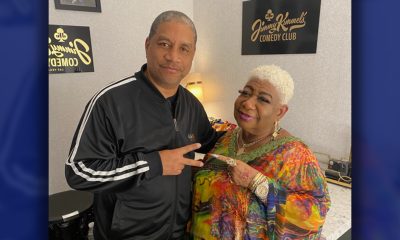
 Community3 weeks ago
Community3 weeks agoTerry T. Backs Oakland Comedy Residency by Oakland’s Luenell at Jimmy Kimmel’s Comedy Club in Las Vegas
-

 Activism3 weeks ago
Activism3 weeks agoOakland Post: Week of October 9 – 15, 2024
-

 Business2 weeks ago
Business2 weeks agoStudy Confirms California’s $20/Hour Fast Food Wage Raises Pay Without Job Losses










